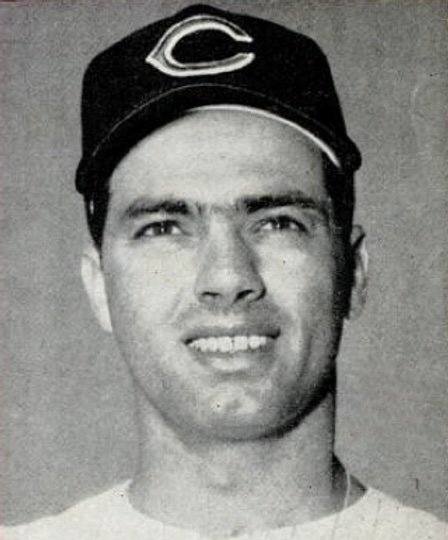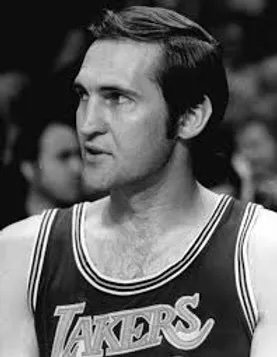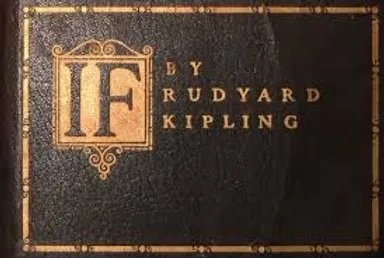Why Being Loyal to the Patriots (Or Any Team) is Not Just Lame - It's Horrible For Humanity
I get it. Growing up, I fell for the Cleveland Browns. My love affair started when I was six, so I didn't know any better about the dangers of fandom. When I was eight, the Browns won the NFL championship (yes, the Browns!), and I was there in the windy cold of Cleveland Municipal Stadium on December 27, 1964. My hero, Frank Ryan, threw three touchdown passes in the shocking 27-0 upset of the Johnny Unitas-led Baltimore Colts.
Check out the price! My brother, JT, and I didn't have such good seats. Our tickets were $6.00.
My favorite player, Browns QB Frank Ryan
My favorite Indian, slugger Rocky Colavito
Each summer, I went to a half-dozen Cleveland Indians games and usually left disappointed. The Indians won 87 games in 1965 and 86 in '68 - their only winning seasons when I was growing up in nearby Northfield. Still, "The Tribe" was my team. I considered myself a part of it.
There was no Cavaliers in those days, so for basketball I cheered for Oscar Robertson and the Cincinati Royals and the Los Angeles Lakers who had Elgin Baylor and Jerry West. In 1969, when the Lakers lost to the Celtics in the 7th game at LA's "Fabulous Forum," I cried.
That should have been a clue about what ought to most matter to sports fans - the players. But I didn't get it then. I still thought it was about cheering for a city. For a team. For colors. For a uniform.
But it never was. At first it was geography. I lived in Cleveland, so I had access to the Indians and Browns' players. Frank Ryan's was my first autograph. The local media allowed me to learn the home team's players' stories. Familiarity led to empathy. I cared about them so I wanted them to win. I wasn't on the team. They were. So I was happy for them when they won and sad for them when they lost.
Yet, I supported the Lakers, even though I had never been west of the Mississippi. I wasn't a fan because I had access. It was because I loved Baylor and West. Later, I was a Baltimore Bullets fan because they had Earl "The Pearl" Monroe. I loved cheering for the Phoenix Suns because they had Connie Hawkins, Dick VanArsdale and, later, Paul Westphal and Steve Nash.
The real question wasn't about why I liked a team. It was why I liked a player. I took to the exceptionally gritty or extraordinarily creative. And, I admit, ones with whom I could identify, such as Pistons guard John Mengelt. I could see a sliver of myself in him.
I wrote a letter to Mengelt, asking for shooting tips. He answered it!
Today, though, it's not about being like them. It's about liking them. I cheer for good guys. Or at least guys I perceive to be good. I don't know them, but I certainly have a feeling about what they're like.
When I watch a sports event, I may start out hoping team X wins. Strangely, though, as the game plays out, I sometimes find myself switching to team Y. Not because I'm a traitor. It's more about the conduct of the players than the color of their jersey. I blame it on my mother's humanity. When the Browns or Indians would lose, she'd always say, "Just think about how good the other team feels." Which was fine except that when the Browns or Indians won, she'd say, "Awww, I feel so sorry for the other team!" It was frustrating, but I probably got my anti-tribalism from her.
Being a fan can be fun - when fans aren't fanatic. Trouble is, they often are. They usually are. It's so stupid. Not so much that they love their city or school's team but because they so bitterly despise the other city or school's team.
It makes no sense. My daughters both went to UCLA. Both were on the dance team. They wore the colors and the UCLA script, so I still want the Bruins to win every game they play, especially when they face archrival, USC.
But I can't hate the Trojans. How can I? Many of my favorite students went to USC. Am I supposed to now see them as them because they wear red and gold instead of blue and gold? How dumb would that be?
You know what's weird? A team's fans - the people who watch the game - harbor way more hate than the people who play the game. Usually, the players respect each other. Not the fans. The lame vitriol that spews from them at games or on social media can be irreparably divisive. Homer announcers fan the flames while whining about every call that goes against their employer. I can barely stomach a game called by a local market's broadcast crew.
So what should we do?
Start with teaching kids that they can want their side to win without wanting the other side to lose. They can be happy for the victors while empathizing with the vanquished. We'll all experience both of what Kipling called "imposters."
If you can meet with Triumph and Disaster,
And treat those two impostors just the same
We all know the hurt that comes with failure. Why wish it upon anyone? Why gloat when it happens?
Homo sapiens are attracted to tribes. We can't help it. It's in our DNA. Twenty thousand years ago we couldn't afford to be left alone in the wilderness. Like our group mates or despise them, we clung to them because we had to.
We still do. In the landmark Harvard Study of Adult Development, it was shown that maintaining healthy relationships literally keeps us alive. (And I'm not misusing literally.) Belonging is still essential. It's why we continue to be attracted to tribes. We want acceptance. We want kinship. So we're prone to joining groups without being selective about who's in the group. Especially when following "our" team. "So what if he's a criminal? He can tackle! He's a winner!"
For all the benefits tribes provide - connection, inclusion, acceptance, a shared passion - they're potentially poisonous because people just aren't picky enough about what tribes they pledge. Like under-parented teens, peer pressure will suck them into whatever group engulfs them.
I get this, too. My Dad liked the Browns, so so did I. My dad liked the Indians, so so did I. I understand the generational family bondings. Your dad and you used to share a love for the Whoeverers, so how could you not be their fan for life?
Perhaps. But is it healthy to support anything, even a sports team, only because of tribal-like loyalty? It's like choosing a religion or party because that was your parents' church or political persuasion - totally understandable but not exactly enlightened. We need to teach our children to think for themselves. Blind loyalty to anyone, anything or even any team is frightening.
At the L.A. Memorial Coliseum, a 10-year-old USC fan once called out to my UCLA dance team daughter, "Hey, f_ _ k you, c_ _t!" while his grandmother laughed and high-fived him. So should we be shocked when sports hostility spills into the non-sports world?
Cheering for your team can and should be fun, but it too easily morphs into rancor and scorn. I can't prove that being an immoderately loyal sports fan pushes people into wicked tribalist beliefs and behaviors outside the arena. But I can't prove that obsessing over your team isn't a gateway drug, either.
Go ahead and root, root, root for the home team. If they don't win, it's a shame. But it's really not that big a shame, is it?









